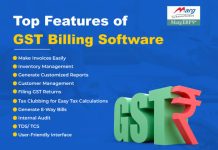INTRODUCTION
Goods and Services Tax (GST) is a comprehensive tax system that has replaced several indirect taxes in India, including value-added tax (VAT), excise duty, and service tax. GST was implemented in India on July 1, 2017, with the aim of creating a unified tax system that would make doing business easier and more transparent. Since its implementation, GST has undergone several changes and updates to make it more effective and efficient.
In Tripura, GST is governed by the Tripura State Goods and Services Tax Act, 2017. All businesses with an annual turnover of more than Rs. 20 lakhs (or Rs. 10 lakhs for businesses in special category states) are required to register for GST. Businesses that are registered under the erstwhile tax regime (such as VAT, excise, and service tax) are also required to register for GST.
The GST regime in Tripura has three components: CGST (Central GST), SGST (State GST), and IGST (Integrated GST). CGST and SGST are levied by the central and state governments, respectively, on intra-state transactions, while IGST is levied on inter-state transactions.
Under GST, businesses are required to maintain proper accounting records, including invoices, bills of supply, and credit and debit notes. All these records must be maintained electronically on the GSTN (GST Network) portal. The GSTN portal is a single platform that enables businesses to file their GST returns, claim input tax credit, and make payments.
In Tripura, businesses are required to file three types of GST returns: GSTR-1, GSTR-2, and GSTR-3. GSTR-1 is a monthly or quarterly return that includes details of all sales made by the business. GSTR-2 is a monthly or quarterly return that includes details of all purchases made by the business. GSTR-3 is a monthly return that includes details of the business’s total tax liability and the amount of tax paid.
One of the key benefits of the GST regime is the input tax credit (ITC) system, which allows businesses to claim credit for the GST paid on their purchases. This helps to reduce the overall tax liability of businesses and promotes the growth of the economy. However, to claim ITC, businesses must ensure that their suppliers have also filed their GST returns correctly.
While GST has made the taxation system in India more streamlined and uniform, it can be complex and challenging for small businesses to navigate. The GST Council has been regularly reviewing and making changes to the GST laws to make it easier for businesses to comply. As a result, it is essential for businesses to keep up-to-date with the latest developments in the GST regime to ensure compliance.
One of the challenges faced by businesses in Tripura is the lack of awareness and understanding of GST. The state government has taken several steps to educate businesses about the GST regulations and provide support in filing GST returns. Additionally, the government has set up GST Suvidha Kendras (GSKs) in the state to provide assistance to businesses in filing their GST returns.
Another aspect of GST accounting in Tripura is the GST audit. Businesses with an annual turnover of more than Rs. 2 crores are required to get their accounts audited by a chartered accountant or a cost accountant. The audit report must be filed on the GSTN portal along with the annual return (GSTR-9).
In case of any errors or discrepancies in the GST returns filed, businesses must take corrective action and file an amendment return (GSTR-1A or GSTR-2A) to rectify the errors. Failure to correct errors or discrepancies can result in penalties and fines.
Overall, GST accounting in Tripura is an essential aspect of doing business in the state. Businesses must ensure that they comply with the GST regulations, maintain proper accounting records, and file their GST returns on time. With the support of the state government and the use of technology, businesses can comply with the GST regulations and focus on growing their business.
Another important aspect of GST accounting in Tripura is the reverse charge mechanism (RCM). Under RCM, the recipient of goods or services is responsible for paying the GST instead of the supplier. This mechanism is applicable to specific goods and services, such as legal services, transportation services, and goods or services received from an unregistered supplier.
It is crucial for businesses to be aware of the RCM provisions and ensure that they comply with them to avoid penalties and fines. Additionally, businesses must maintain proper records of the GST paid under RCM to claim input tax credit.
The GST Council has also introduced several measures to make the GST system more taxpayer-friendly, such as the introduction of the GST annual return (GSTR-9) and the simplification of the GST return filing process with the introduction of the new return filing system (NPRS).
Conclusion
GST accounting in Tripura can be complex, but with the support of the state government and the use of technology, businesses can comply with the GST regulations and focus on growing their business. Businesses must stay up-to-date with the latest developments in the GST regime and ensure that they maintain proper accounting records and file their GST returns on time.
Other Related Blogs: Section 144B Income Tax Act








